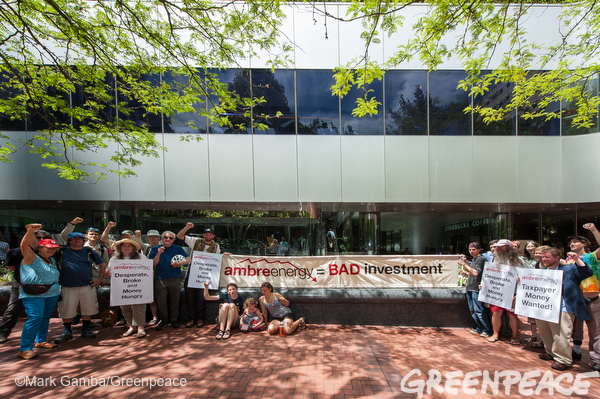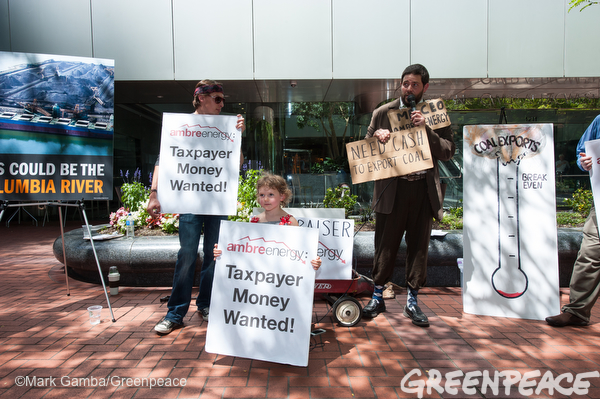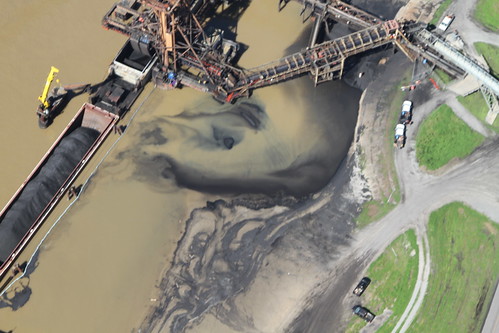Despite its desire to build the first new coal export facilities in the Pacific Northwest, Ambre Energy continues to face massive public opposition andpermitting setbacks, while struggling to court investors. At the end of May, Ambre Energy’s removal-fill permit was delayed for an eighth time by Oregon’s Department of State Lands. And last year, Ambre was forced to give upsubstantial ownership shares to the private equity firm Resource Capital Funds (RCF) to avoid financial insolvency.
This is why local activists performed in front of Ambre’s office to highlight the economic risks of coal exports. They’re asking folks to attend the July 17th hearing and give comments to the Oregon Transportation Commission opposing the misuse of public money.
We agree with Governor Kitzhaber when he said, “it is time once and for all to say no to coal export from the Pacific Northwest.” Using taxpayer money to finance risky fossil fuel projects sends the wrong message and certainly doesn’t move us toward a clean energy future.
Fortunately, communities across the west are winning the fight against coal. Whether at the mines in Montana or coal export terminal proposals in the Pacific Northwest, people are mobilizing. Thousands in Oregon and Washington have signed petitions urging RCF executives to drop their investment in Ambre Energy.
The State of Oregon Should not subsidize risky fossil fuel projects, backed by a company with a poor financial track record. We can do better than coal exports.
More event photos here!
crossposted from Greenpeaceblogs.com




